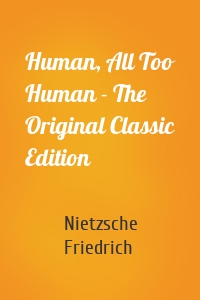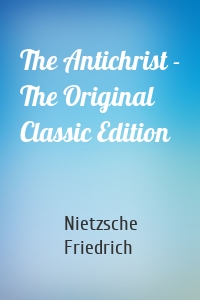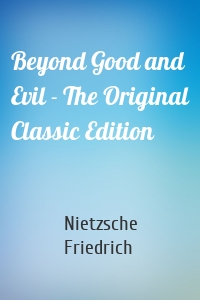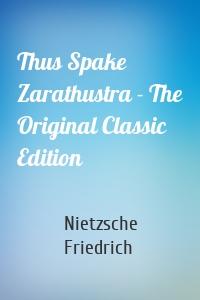Nietzsche Friedrich
4 кн.
Human, All Too Human - The Original...
Nietzsche is often said to have entered a new period with the publication of Human All Too Human and the book is considerably more positivistic than his earlier writings. It aims at debunking unwarranted assumptions more than at defending a grand interpretation of its own, and it marks the high point of Nietzsches interest in, and applause for, natural science. <p> Nietzsche describes what he means by free spirits in the preface to the second edition of Human All Too Human. Free spirits...
| Автор | Nietzsche Friedrich |
The Antichrist - The Original Class...
Nietzches The Anti-Christ was one of the last books Nietzsche wrote before the onset of his insanity in 1888. Unlike many of Nietzsches other books, which raise tantalizing questions and examine experience from a variety of angles, some of them contradictory, The Anti-Christ is a relatively straightforward presentation of Nietzsches critique of Christianity. Contrary to what many think, Nietzsche did not advocate the general abolition of Christianity. He thought it served the needs of the...
| Автор | Nietzsche Friedrich |
Thus Spake Zarathustra - The Origin...
Thus Spoke Zarathustra: A Book for All and None (German: Also sprach Zarathustra: Ein Buch für Alle und Keinen) is a philosophical novel by German philosopher Friedrich Nietzsche, composed in four parts between 1883 and 1885. Much of the work deals with ideas such as the eternal recurrence of the same, the parable on the death of God, and the prophecy of the Übermensch, which were first introduced in The Gay Science. <p> Described by Nietzsche himself as the deepest ever written, the...
| Автор | Nietzsche Friedrich |





